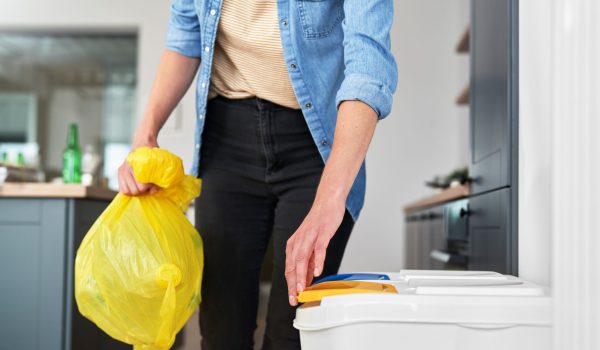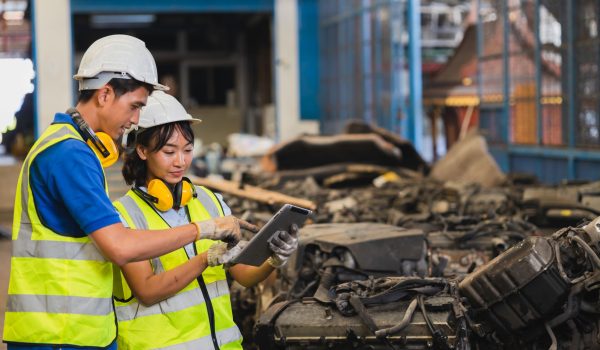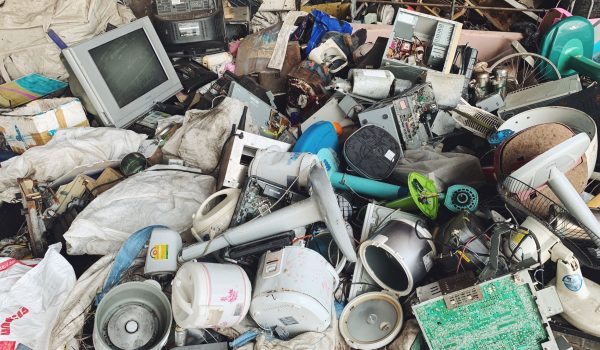E-waste in the United Kingdom
Challenges and opportunities
This report describes how electrical appliances are used and disposed of in the United Kingdom (UK). Understanding these flows helps identify ways to promote reuse and recycling. 2021 is the most recent year with data, which will be compared to 2017 data.
Between 2017 and 2021 there has been a decrease in the weight of electrical appliances thrown away by consumers. However, there are still concerns, including an increase in the number of unused goods in UK homes, an increase in illegal exports and an increase in freeriding, where new products are brought to market from manufacturers who do not meet producer responsibility regulations.
Waste electrical appliances can play an important role in the development of the UK’s circular economy as they contain valuable materials that can be recycled infinitely. Sharing knowledge and adopting best practice will help to improve reuse and recycling. This will increase availability and consumer acceptance, increasing reuse and recycling rates of electrical appliances in the UK.
Other relevant publications
E-waste in household residual waste
Inventory of the quantity and different types of e-waste in residual waste for 2023
The global e-waste monitor 2024
The global e-waste monitor is the most up-to-date overview of global e-waste data, statistics and progress in policy and regulation.
E-waste in the Metropoolregio Amsterdam
An exploration of the e-waste chain and future logistics scenarios







